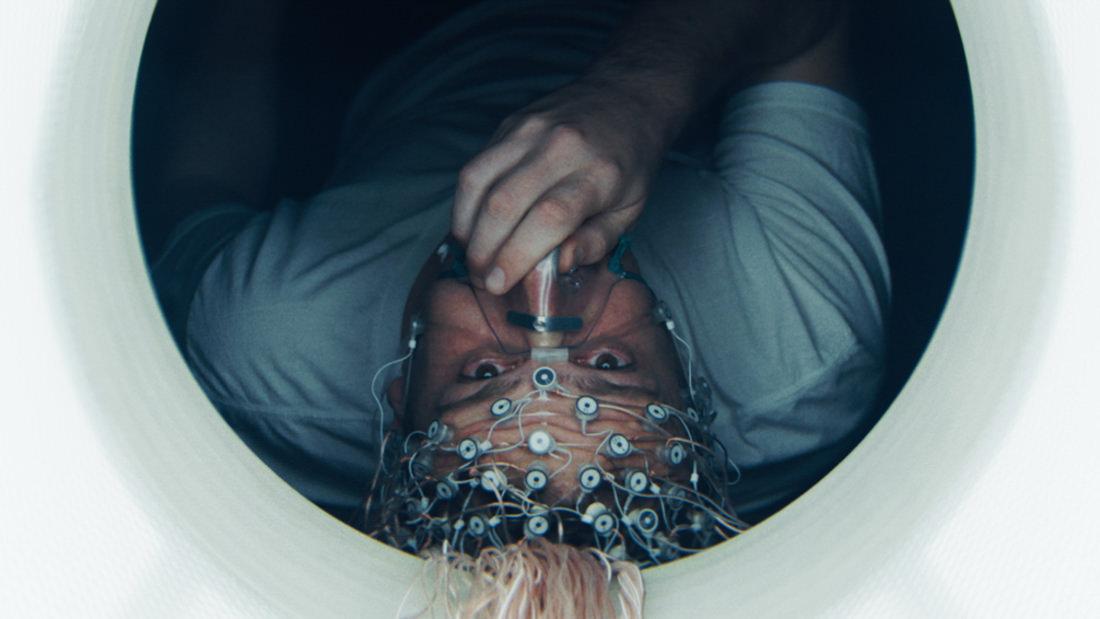The Discovery review: Netflix's latest sci-fi is all questions, no heart
Stars Jason Segel and Rooney Mara struggle to inject energy into the film's sombre, self-serious script

Netflix has found certain territory in the high concept sci-fi, already so sturdily proven in Stranger Things' wild success and only furthered with the release of Zal Batmanglij's The OA. When limited budgets tear down the possibility of spectacle, it's natural for filmmakers to attempt the spectacle of thought; to chase after the ideas that bend minds and drop jaws.
Charlie McDowell's The Discovery, which initially premiered at the Sundance Film Festival after being acquired by Netflix, certainly shares these ideals. But its passions are, unfortunately, also its downfall. It's a film built entirely on questions, posed one after the other by various characters across various spaces, delivered with the same disinterest in conclusion as a stoner's idle musings. The hope here is that just one of said questions will bend your mind, or drop your jaw, though it's a fixation ultimately self-destructive in its pursuit.
The Discovery, much like The OA, centres around the concept of the afterlife. The film opens on the two-year anniversary of one scientist (Robert Redford)'s discovery that some part of the human consciousness departs the body after death, travelling to a “new plane of existence”.
Here, the film attempts to pose the dilemma of whether we have a responsibility to share with the world what we've uncovered, no matter its consequences; with the revelation leading to mass suicides across the globe as people attempt to reach this mysterious other place.
However, its a base conceit not nearly elaborated enough on. There's little drive here to explore the personal and emotional repercussions of such a decision, or even exactly why so many would choose to kill themselves to reach what is still an unknown world – indeed, its only lightly hinted at that it could be a hell rather than a heaven they're travelling to.
Rather, The Discovery follows the scientist's son, Will (Jason Segel), as he plods along some mystery-unravelling journey following his arrival to his father's facility, right before the unveiling of a new machine set to discover exactly what this other place consists of.
All, of course, while finding himself in a near-obligatory romance with the woman he saves from drowning (Rooney Mara); a largely lifeless manic pixie dream girl trope who's immediately pitched in competition with another member of the facility (Riley Keough), merely because they're the only two women we really see knocking about.
The pair seems largely emotionally detached from each other outside of their coolly delivered intellectual discussions, an opportunity to bat around various ideas on the concepts of fantasy and reality, the search for meaning, and even the possible existence of an animal afterlife.
The vastness, and inconclusiveness, of these topics find Mara and Segel both struggling to inject energy into the material; their sombre, self-serious presences seemingly at odds with the film's rare light-hearted sequences, including one moment in which they both steal and return a corpse from a local coroner's office.
The Discovery is a film which poses far too many questions, but with no heart to search for the answers; especially as it starts to lose its way in the final reel, spiralling further and further away from the tight ethical dilemma of its initial conceit and towards another high concept sci-fi pitch that would seem more duly explored in a film of its own.
The Discovery is available on Netflix now.
Subscribe to Independent Premium to bookmark this article
Want to bookmark your favourite articles and stories to read or reference later? Start your Independent Premium subscription today.

Join our commenting forum
Join thought-provoking conversations, follow other Independent readers and see their replies